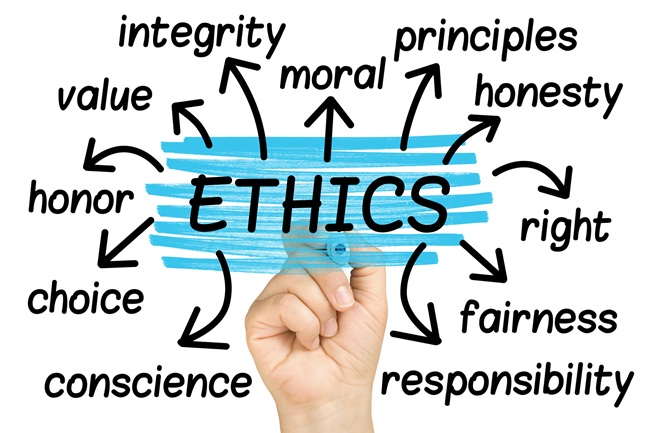Feb 05, 2026
Feb 05, 2026

Why the World’s Brightest Minds Still Fail the Moral Test
If not, what does that say about our temples of higher learning — the very institutions that claim to produce the world’s finest leaders?
We live in a world where the pursuit of intellect has far outpaced the cultivation of conscience. The human brain has expanded, but the human heart has shrunk. Every year, the Ivy League produces thousands of bright, confident graduates — individuals who can build billion-dollar startups, negotiate trade wars, and decode the genome. Yet, when it comes to the simplest question — “Is this right?” — many stumble.
The Fall of the Brilliant: When Intelligence Outruns Integrity
From the Enron scandal (Jeffrey Skilling, a Harvard Business School graduate) to the FTX collapse (Sam Bankman-Fried, an MIT alumnus), history is replete with examples of intellectual prodigies who failed the ethical exam of life. Elizabeth Holmes, the Stanford dropout who ran Theranos, created an empire of deception wrapped in Silicon Valley glamour. Rajat Gupta, the former McKinsey Managing Director and a Harvard Business School alumnus, was convicted of insider trading despite being celebrated as the epitome of corporate excellence.
What is shocking is not that these individuals were caught, but that they existed — products of institutions that claim to educate for leadership and impact. The question we must ask is: why do such incidents emerge repeatedly from the most elite corridors of education?
The Ethical Void in Elite Education
The problem begins with what these institutions celebrate. Success is measured not by character but by capital, not by conscience but by competence. Ethics is often treated as an elective, not a way of life. Moral philosophy is squeezed into a one-credit seminar, while finance, analytics, and strategy dominate the curriculum.
The culture of “winning” at all costs has replaced the older ethos of “doing the right thing even when it costs.” The obsession with placement packages, startup valuations, and networking dinners slowly corrodes the soul of the student. When ambition is worshipped and humility is mocked, integrity naturally becomes collateral damage.
Many top-tier institutions claim they teach ethics — Harvard, for instance, introduced post-Enron courses like “Leadership and Corporate Accountability.” Wharton created a “Legal Studies and Business Ethics Department.” Yet, ethics taught in the classroom is not the same as ethics practiced in life. The academic discussion of morality without lived demonstration is like teaching swimming on dry land.
Why Do the Brightest Minds Fall?
Realigning Education with Ethics: From ‘IQ’ to ‘EQ’ to ‘MQ’
To correct this imbalance, the world’s premier institutions must go beyond cosmetic ethics courses and engineer a moral redesign of education. Here are some practical steps:
Global Examples & Institutional Responses
After the 2008 financial crisis, Harvard Business School faced criticism for “educating the people who broke capitalism.” In response, it made “Leadership and Corporate Accountability” mandatory and initiated the “MBA Oath” — a voluntary pledge where students promise to act responsibly and ethically.
Similarly, MIT introduced the “Ethics of AI” initiative, while Stanford created the “McCoy Family Center for Ethics in Society.” Yet, these measures remain fragmented, often optional, and lack the cultural enforcement that moral education truly requires.
Ethics cannot thrive in PowerPoint slides — it must breathe through campus culture, mentorship, and institutional example.
The Indian Perspective: Ethics as ‘Dharma’
Indian civilization long ago solved what Western academia is still grappling with. The concept of Dharma — the moral law governing action — was never a classroom subject but a way of being. In the Bhagavad Gita, Krishna tells Arjuna:
“Yad yad acarati sresá¹has tat tad evetaro janaḥ”
(“Whatever the great person does, others follow; whatever standards they set, people in general follow.”)
If the elite are corrupt, the masses lose faith. If the educated are unethical, education itself becomes suspect.
Perhaps it is time that the Ivy League borrowed from India’s ancient pedagogy — the Guru-Siá¹£ya tradition — where knowledge was incomplete without virtue, and intelligence was sterile without humility.
Final Thoughts: Ethics – The Forgotten Curriculum of the Enlightened
The world doesn’t need more intelligent people; it needs more integrated people — those whose head and heart work in unison. A society that celebrates brilliance without goodness is a civilization on the edge of collapse.
It’s time to redefine “Ivy League” — not as a badge of intellect but as a beacon of integrity. Let Harvard, MIT, Stanford, Wharton, and their peers produce graduates who can not only lead companies but also lead humanity — not by their ‘IQ,’ but by their ‘Integrity Quotient.’
Only then can education truly be called enlightenment.
Image (c) istock.com
15-Nov-2025
More by : P. Mohan Chandran